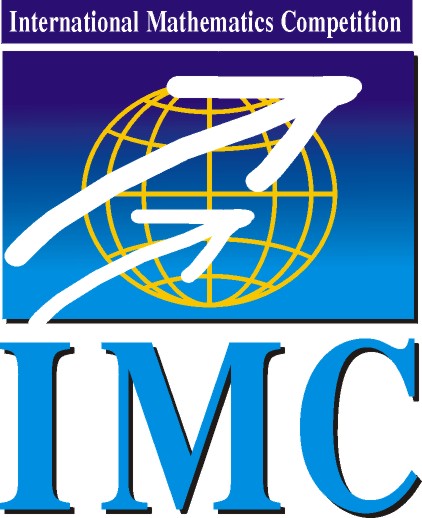
|
International Mathematics Competition
|
IMC 2026 |
| Information | Results | Problems & Solutions |
IMC2017: Problems on Day 1
1. Determine all complex numbers $\lambda$ for which there exist a positive integer $n$ and a real $n\times n$ matrix $A$ such that $A^2=A^T$ and $\lambda$ is an eigenvalue of $A$.
Proposed by: Alexandr Bolbot, Novosibirsk State University
2. Let $f\colon\mathbb{R}\to(0,\infty)$ be a differentiable function, and suppose that there exists a constant $L>0$ such that $$ \bigl|f'(x)-f'(y)\bigr| \leq L\bigl|x-y\bigr| $$ for all $x,y$. Prove that $$ \big(f'(x)\big)^2 < 2Lf(x) $$ holds for all $x$.
Proposed by: Jan Šustek, University of Ostrava
3. For any positive integer $m$, denote by $P\left(m\right)$ the product of positive divisors of $m$ (e.g. $P(6)=36$). For every positive integer $n$ define the sequence $$ a_1(n)=n, \qquad a_{k+1}(n)=P(a_k(n)) \quad (k=1,2,\ldots,2016). $$
Determine whether for every set $S\subseteq\{1,2,\ldots,2017\}$, there exists a positive integer $n$ such that the following condition is satisfied:
For every $k$ with $1\le k\le 2017$, the number $a_k(n)$ is a perfect square if and only if $k\in S$.
Proposed by: Matko Ljulj, University of Zagreb
4. There are $n$ people in a city, and each of them has exactly $1000$ friends (friendship is always symmetric). Prove that it is possible to select a group $S$ of people such that at least $n/2017$ persons in $S$ have exactly two friends in $S$.
Proposed by: Rooholah Majdodin and Fedor Petrov, St. Petersburg State University
5. Let $k$ and $n$ be positive integers with $n\ge k^2-3k+4$, and let $$ f(z)=z^{n-1}+c_{n-2}z^{n-2}+\ldots+c_0 $$ be a polynomial with complex coefficients such that $$c_0c_{n-2}=c_1c_{n-3}=\ldots=c_{n-2}c_0=0.$$ Prove that $f(z)$ and $z^n-1$ have at most $n-k$ common roots.
Proposed by: Vsevolod Lev and Fedor Petrov, St. Petersburg State University
© IMC